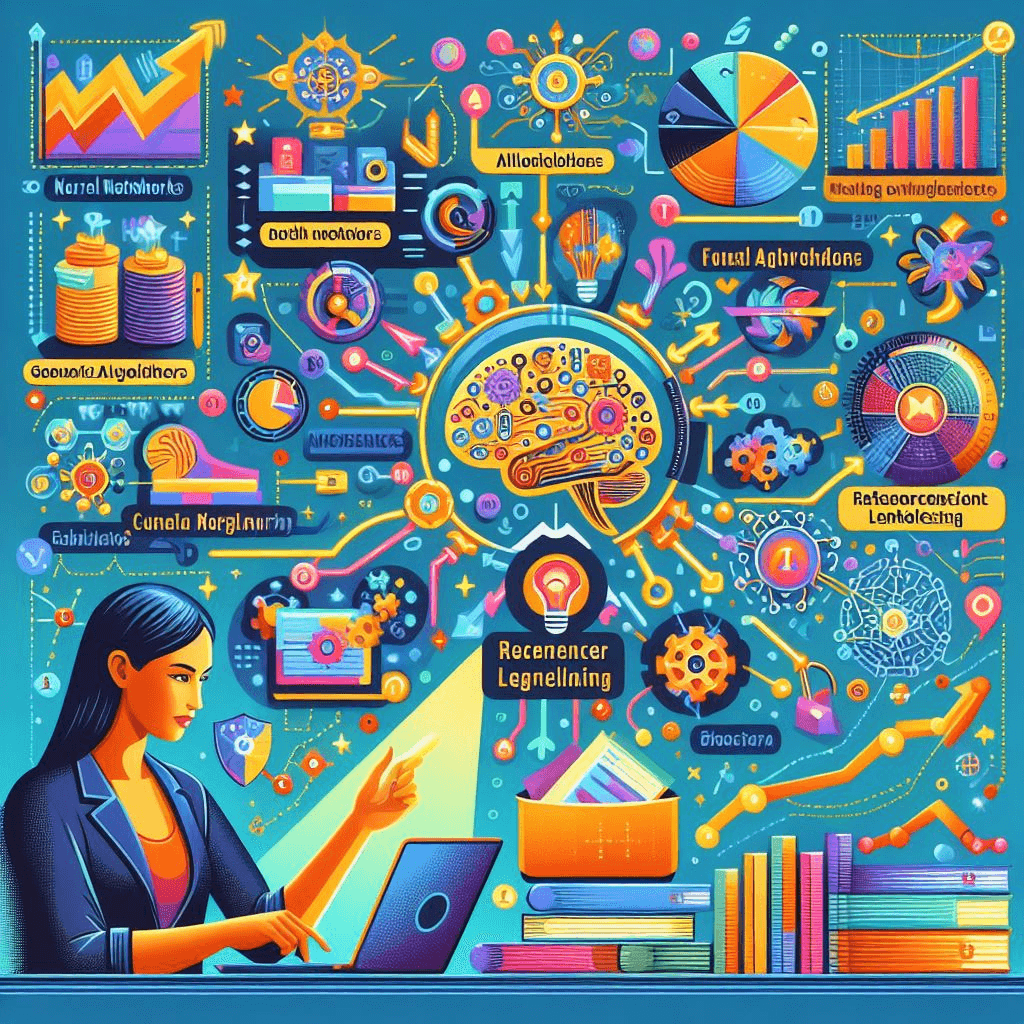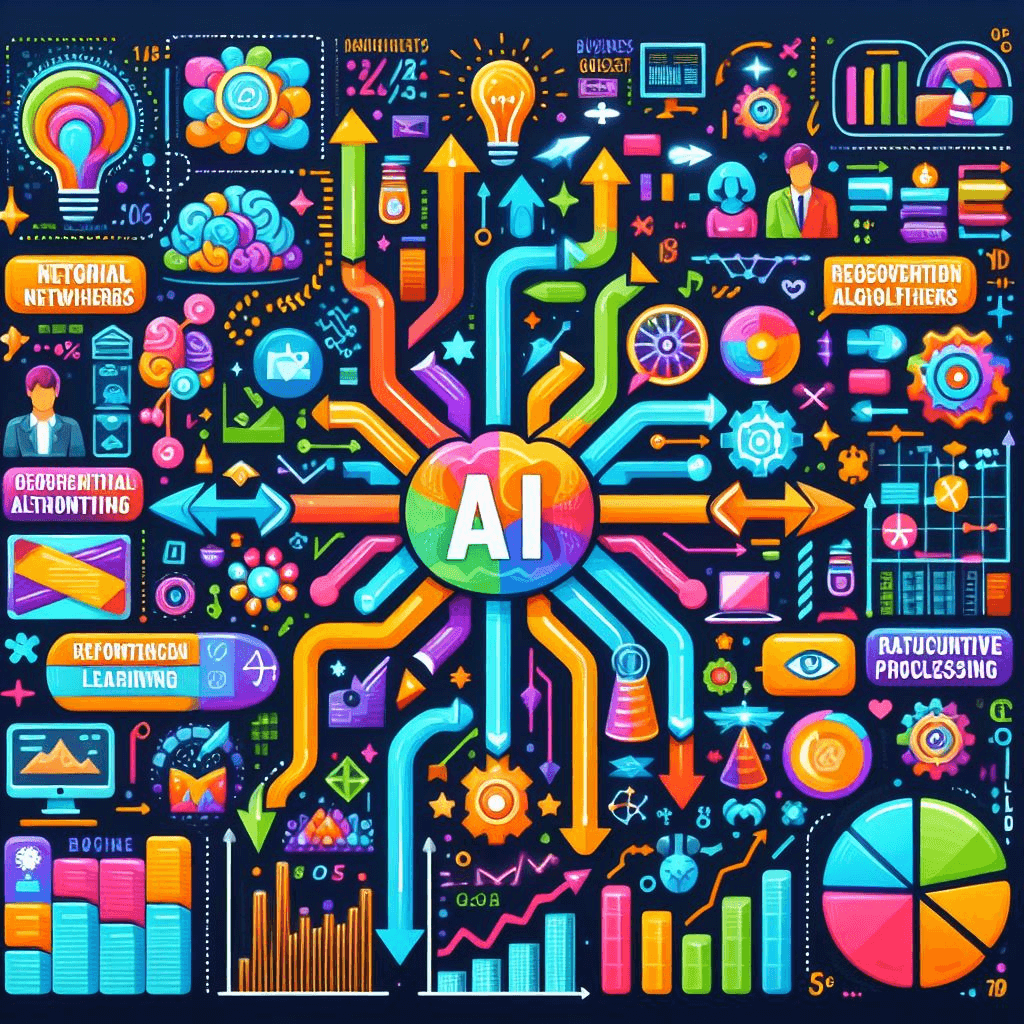Introduction to Seamless AI Productivity
In today’s fast-paced world, productivity is essential for achieving success, whether in personal or professional endeavors. Fortunately, with the advent of Artificial Intelligence (AI), individuals and businesses have access to powerful tools that can significantly enhance productivity. In this comprehensive guide, we’ll explore five AI methods that can help boost your productivity and streamline your workflow, providing practical insights and examples to illustrate their effectiveness.
1. AI-Powered Task Automation
One of the most impactful applications of AI for productivity enhancement is task automation. AI-powered automation tools leverage machine learning algorithms to identify repetitive tasks and streamline them, freeing up valuable time for more critical activities. For instance, businesses can use AI chatbots to automate customer support inquiries, while individuals can utilize AI-driven scheduling assistants to automate appointment bookings and reminders. By automating mundane tasks, individuals and organizations can focus their energy on strategic initiatives and high-value work, ultimately improving overall productivity and efficiency.
Example: Consider a marketing team tasked with manually scheduling social media posts across various platforms. By implementing AI-powered social media management tools like Hootsuite or Buffer, they can automate post scheduling based on optimal times for engagement, freeing up time to focus on content creation and strategy development.
2. Intelligent Personal Assistants
Intelligent personal assistants, such as Siri, Google Assistant, and Amazon Alexa, have become indispensable tools for many individuals seeking to enhance their productivity. These AI-powered assistants leverage natural language processing and machine learning algorithms to perform a wide range of tasks, from setting reminders and scheduling appointments to providing real-time information and making recommendations. By simply issuing voice commands or typing queries, users can access information, organize their schedules, and complete tasks more efficiently, thereby boosting productivity.
Example: Imagine a busy professional needing to prepare for a meeting while juggling multiple tasks. Using an intelligent personal assistant like Siri, they can quickly set reminders, check their calendar, and access relevant documents, all without interrupting their workflow, allowing them to stay focused and productive.
3. AI-Powered Time Management Tools
Effective time management is crucial for productivity, and AI-powered time management tools offer valuable assistance in optimizing schedules and maximizing efficiency. These tools analyze users’ work habits, preferences, and priorities to provide personalized recommendations for organizing and managing time effectively. By leveraging AI algorithms to identify time-wasting activities, prioritize tasks, and allocate time more efficiently, individuals can make the most of their day and accomplish more in less time.
Example: Consider a freelancer managing multiple projects with tight deadlines. By using an AI-powered time tracking and management tool like RescueTime or Toggl, they can gain insights into their time usage, identify productivity bottlenecks, and allocate time more effectively to meet project deadlines, thereby enhancing overall productivity.
4. Smart Email Prioritization and Organization

Email overload is a common productivity challenge for many individuals, but AI-driven email prioritization and organization tools offer a solution. These tools leverage machine learning algorithms to categorize and prioritize emails based on factors such as importance, urgency, and sender. By automatically sorting and highlighting important emails, individuals can reduce email clutter, focus on critical tasks, and respond to emails more efficiently, ultimately improving productivity.
Example: Imagine a sales professional receiving hundreds of emails daily. By using an AI-powered email prioritization tool like Gmail’s Priority Inbox or Microsoft Outlook’s Focused Inbox, they can ensure that important client emails are highlighted and addressed promptly, while less critical emails are filtered out or dealt with later, allowing them to manage their inbox more effectively and stay focused on revenue-generating activities.
5. AI-Powered Analytics and Insights
Data-driven insights are essential for understanding productivity patterns, identifying areas for improvement, and optimizing workflows. AI-powered analytics tools analyze data from various sources, such as calendars, emails, and task management software, to provide valuable insights into productivity trends, bottlenecks, and opportunities. By leveraging AI-driven analytics, individuals and organizations can make informed decisions, optimize workflows, and enhance productivity effectively.
Example: Consider a project manager overseeing a team’s productivity. By using AI-powered analytics tools like Asana or Trello, they can track team performance metrics, identify project bottlenecks, and allocate resources more efficiently to meet project deadlines and objectives, ultimately improving overall productivity and project outcomes.
6. Streamlining Project Management with AI
Project management is a complex endeavor involving multiple tasks, timelines, and stakeholders. AI offers innovative solutions to streamline project management processes, from planning and resource allocation to tracking progress and mitigating risks. AI-powered project management platforms utilize predictive analytics to forecast project timelines, identify potential bottlenecks, and allocate resources efficiently. By leveraging AI in project management, teams can enhance collaboration, optimize workflows, and deliver projects on time and within budget, thus boosting overall productivity.
7. Improving Employee Training and Development
Employee training and development are essential for maintaining a skilled and engaged workforce, but traditional training methods can be time-consuming and ineffective. AI-driven training solutions offer personalized and adaptive learning experiences tailored to individual needs and learning styles. These solutions leverage machine learning algorithms to analyze employee performance data, identify areas for improvement, and deliver targeted training modules in real-time. By providing relevant and engaging training content, AI enhances employee skill development, accelerates onboarding processes, and boosts overall productivity within organizations.
8. Optimizing Customer Relationship Management (CRM)
Effective customer relationship management (CRM) is critical for business success, but managing customer interactions and data can be overwhelming. AI-powered CRM systems automate and optimize various aspects of customer relationship management, from lead generation and sales forecasting to customer support and retention. These systems leverage AI algorithms to analyze customer data, predict customer behavior, and personalize interactions at scale. By automating routine tasks, providing actionable insights, and delivering personalized experiences, AI-powered CRM solutions enhance customer engagement, drive sales effectiveness, and improve overall productivity for sales and marketing teams.
9. Enhancing Supply Chain Management
Supply chain management is a complex and dynamic process involving multiple stakeholders, inventory management, and logistics coordination. AI offers transformative solutions to enhance supply chain efficiency, optimize inventory levels, and mitigate risks. AI-powered supply chain management platforms leverage predictive analytics to forecast demand, identify supply chain disruptions, and optimize inventory replenishment strategies. By providing real-time insights and automating decision-making processes, AI enables organizations to streamline supply chain operations, reduce costs, and improve overall productivity across the value chain.
10. Facilitating Continuous Learning and Improvement
Continuous learning and improvement are fundamental to staying competitive in today’s rapidly evolving business landscape. AI-driven knowledge management systems enable organizations to capture, organize, and disseminate knowledge effectively. These systems leverage natural language processing (NLP) and machine learning algorithms to analyze and categorize vast amounts of unstructured data, such as documents, emails, and customer feedback. By facilitating knowledge sharing, fostering collaboration, and enabling continuous learning, AI-powered knowledge management systems empower organizations to adapt to change, innovate, and drive productivity gains over time.
Conclusion: Artificial Intelligence offers a wealth of opportunities to boost productivity and streamline workflows in both personal and professional settings. From task automation and intelligent personal assistants to time management tools, email organization, and analytics, AI-powered methods provide valuable assistance in optimizing productivity and achieving goals more efficiently. By leveraging these AI methods effectively, individuals and organizations can unlock new levels of productivity, stay ahead of the competition, and achieve success in today’s fast-paced world.
Also Read: AI in Blogging Automation: Big and Beyond
